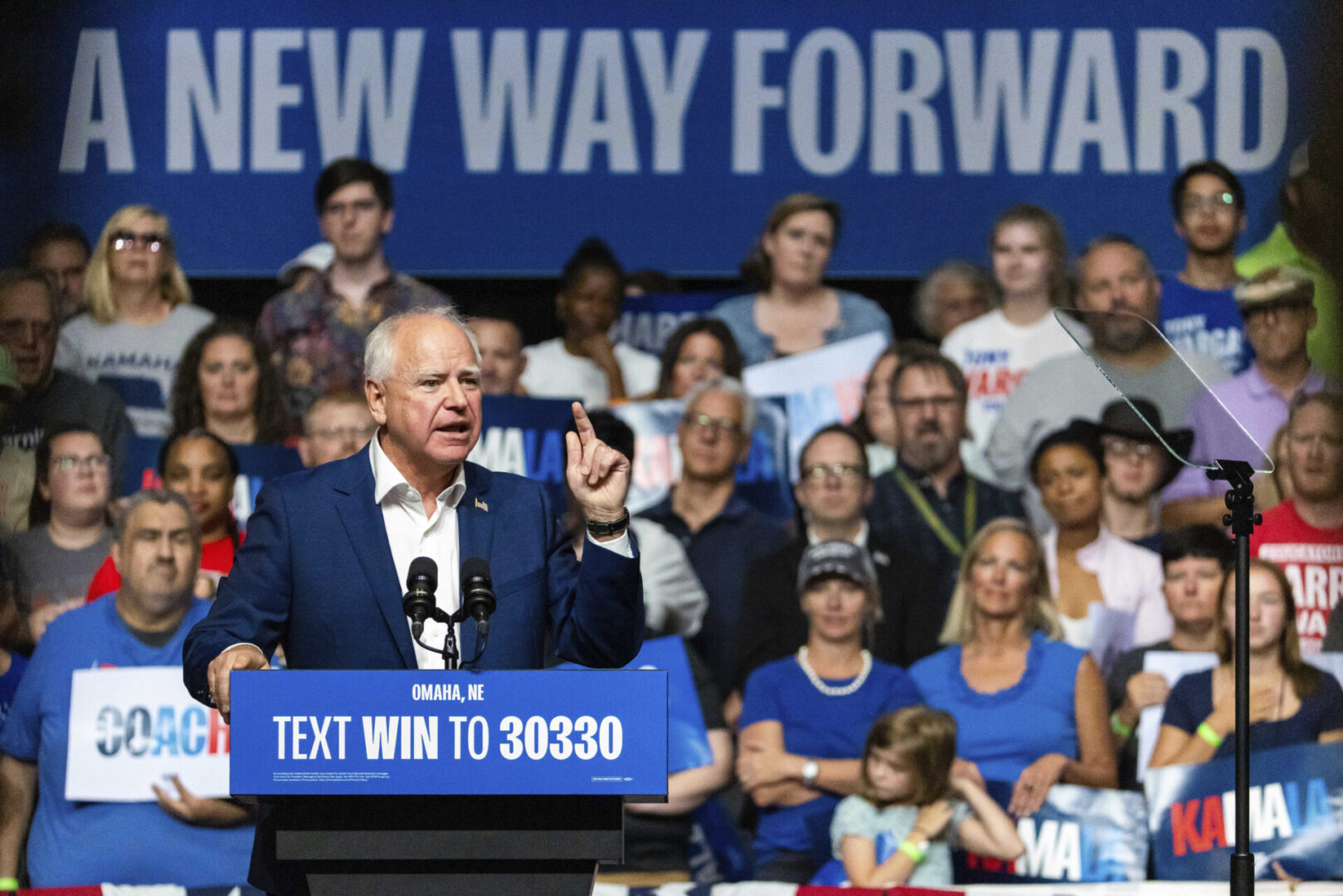Highlighted during vice presidential candidate Tim Walz’s introductory bio and speech at the Democratic National last week was the Minnesota governor’s career as a high school football coach. As the crowd held up signs that said “COACH”, President Trump posted on social media: “Walz was an ASSISTANT coach, not a COACH.”
On behalf of countless men and women who have served as ASSISTANT coaches, let us educate you on the error of your tweet Mr. FORMER President. For you to imply that assistant coaches are unworthy of being called a coach shows a complete lack of understanding of what builds a great team.
Assistant coaches are vital to every team’s success. Often, they do the heavy lifting required of coaches for team success at the high school and college levels. It’s not surprising that you don’t get it. People who have never coached only see the limelight around the head coach and don’t know the truest mission of college and high school coaching.
Coaching extends far beyond the field, court or rink. School sports were designed to be an activity to add to the educational experience. They give young women and men an avenue to learn life lessons. Sports teach young people to understand preparation, competition and coping with success and failure. They give them a sense of belonging, a place to understand that the greatest of pronouns are “We/Us/Our.”
A coach’s role is to lead, to instruct and to guide young people. A coach supports and prepares young people to find the very best in themselves. That guidance and that coaching also extends to building success in the classroom and in life.
The role of an assistant coach is often far more detailed than that of a head coach. It involves teaching fundamentals in their sport and academics to foster growth as people.
In college sports, assistant coaches are the main contact points for the players they recruit and coach, and for their families. They know the most about those players and are often the most important contact in these players’ lives as student-athletes.
In high school sports, those roles are sometimes even more pronounced. I’ve known high school assistant coaches who made sure players from tough backgrounds had rides to school, had enough to eat and stayed on track in school and in life.
As an assistant, Coach Walz made sure a player that was struggling in school got extra help in tutoring from his wife. The academic success that ensued impacted that player positively in school, in his sport and in life. Coach Walz and his wife worked extra jobs coaching sports to help pay off the school cafeteria debt of another student.
The role of an assistant coach is a noble role, requiring commitment of time and sacrifices that are shared by their families. Coaching as an assistant is often done without notoriety or public recognition. It is truly a labor of love.
Head coaching rarely grants that coach the ability to reach every player. That falls to the assistants who often know the most about the players. Assistant coaches are the ones who talk with players to quell doubts, keep them encouraged and help them overcome setbacks in all aspects of their lives.
Across the years, there are things that assistant coaches have done that are far from the fields.
It was an assistant coach at Penn State who had to get a player out of his class to tell him that his brother had been hit by a car and would lose both of his legs. It was an assistant coach who was the first contact with a player who’d witnessed the 1996 HUB Lawn shooting. That shooting had drawn out traumatic memories of a hunting accident he’d witnessed.
Assistant coaches have had to sit players down and tell them about deaths in a family, or a family cancer diagnosis. Assistant coaches are often the first to recognize changes in behavior that point to issues of substance abuse, or mental health issues.
An assistant coach challenged two future pro players, who’d not yet reached their full potential, to quit drinking. That coach quit drinking to share the challenge. Long before society reached the current levels of acceptance and inclusion of LGBT players, it was an assistant coach who thought he had a player who had not come out. That assistant coach asked the guys he coached to stop making certain jokes and to stop saying things like “No homo” and using slurs.
Maybe the assistant coach doesn’t get the wins and losses posted next to her or his name. But coaching at the high school and collegiate level should be an act of selfless caring for others. Which leads us to the ultimate act of an assistant coach.
In February 2012, it was an assistant high school football coach, Frank Hall at Chardon High School in Ohio, who, despite having a gun aimed at him during a mass shooting, charged the shooter and saved other’s lives.
The life-changing actions of countless assistant coaches are so much bigger than a win/loss ledger next to the name of a head coach. The Hall of Fame head coaches I worked for would tell you the same thing.
That makes them coaches in the fullest meaning of that word. All the tweets in the world won’t change that.



